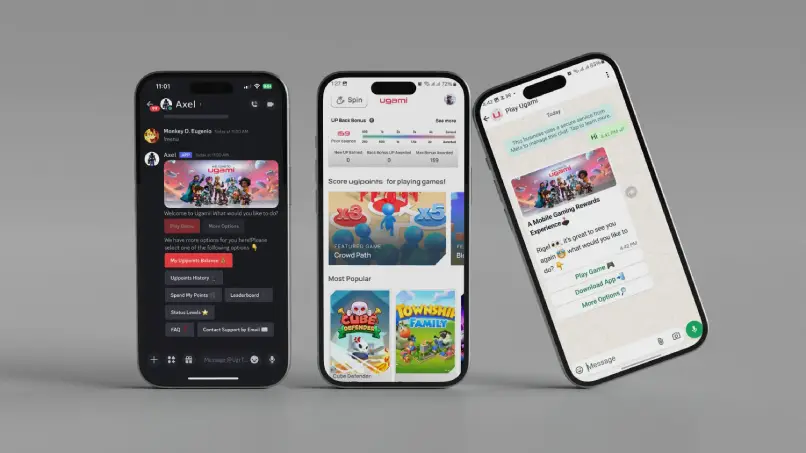Why Play-to-Earn Rewards Are Changing the Way You Play and Gain
The appearance of play-to-earn designs represents a notable change in the gaming landscape, welcoming players to discover not only the home entertainment worth of games yet also their potential as income-generating platforms. This standard provides varied benefits, consisting of asset ownership via blockchain innovation, which basically changes gamer involvement and investment. Nonetheless, as this version advances, it provides an unique set of challenges that can impact its sustainability and allure. Comprehending these characteristics elevates significant questions regarding the future of pc gaming and the implications for both gamers and programmers alike.
Appearance of Play-to-Earn Designs
In the last few years, the video gaming market has actually seen a substantial transformation with the appearance of play-to-earn versions, basically altering how gamers engage with electronic atmospheres. This ingenious method allows players to get tangible incentives with their in-game tasks, developing a change from typical video gaming standards where pleasure and competitors were the key inspirations.
Play-to-earn models leverage blockchain modern technology and non-fungible tokens (NFTs) to provide gamers with ownership of in-game possessions, which can be traded or cost real-world currency. Consequently, players are incentivized to invest effort and time into video games, promoting a sense of firm and economic opportunity. play to earn rewards. This change has brought in a diverse player base, including those who might have formerly checked out video gaming as a totally recreational task
A number of systems have arised, showcasing successful executions of this model, such as Axie Infinity and Decentraland. These platforms have not only produced substantial earnings yet also stimulated conversations around the sustainability and principles of such economic systems. As play-to-earn models remain to develop, they assure to redefine the connection between players, programmers, and the broader digital economic climate, paving the means for a new age in video gaming.
Benefits for Gamers
As gamers engage with play-to-earn versions, they unlock a variety of benefits that prolong past mere entertainment. Among one of the most significant advantages is the possibility for monetary incentives. Unlike conventional pc gaming, where gamers invest money and time without tangible returns, play-to-earn systems enable players to earn copyright or in-game assets that can be transformed to real-world value. This financial motivation not only improves involvement but likewise promotes a feeling of ownership over the gaming experience.
Furthermore, play-to-earn versions promote community building among players. Gamers frequently team up to accomplish common objectives, consequently growing social connections that enhance the general experience. This feeling of neighborhood can result in participating gameplay, where gamers share methods and resources, boosting both personal and group achievements.
Furthermore, these versions can democratize accessibility to gaming by allowing gamers from varied financial backgrounds to benefit financially. By participating in play-to-earn environments, individuals can gain skills and expertise about blockchain modern technology, further broadening their career possibilities in the expanding electronic economic situation. Inevitably, the benefits for gamers extend well past gameplay, influencing their social, economic, and academic landscapes positively.
Challenges in the Environment
While the play-to-earn ecological community provides substantial chances, it is not without its obstacles. Fluctuations in worth can deter prospective gamers that seek steady revenue streams.
Another difficulty is the threat of scams and deceitful systems that can afflict the environment. Gamers may run into deceptive systems assuring high rewards however inevitably causing monetary loss. Guaranteeing trust fund and safety is important for the long-term feasibility of play-to-earn versions.
Furthermore, the ecological effect of blockchain pc gaming can not be overlooked. The energy usage connected with mining and transaction handling raises moral questions about sustainability. Game developers should locate a balance in between gratifying players and lessening eco-friendly impacts.
Lastly, the regulative landscape is still advancing, positioning possible risks for developers try this site and players alike. Uncertain lawful structures can hinder development and limit the growth of play-to-earn communities. Attending to these difficulties is necessary for understanding the full possibility of this transformative pc gaming standard.
The Function of Blockchain Technology
Blockchain technology works as the foundation of the play-to-earn environment, attending to much of the obstacles formerly described. By using decentralized ledgers, blockchain makes sure transparency and safety in deals. Players can with confidence gain and trade in-game properties, understanding that ownership is verifiable and exempt to control.

Tokenization of properties plays a critical function, granting gamers true possession of their in-game items, which can be acquired, offered, or traded on numerous markets. This urges a dynamic second market, where players can monetize their abilities and time bought the game.
In addition, blockchain innovation makes it possible for interoperability between various games and systems, allowing gamers to lug their possessions throughout various ecosystems. This versatility not just enhances customer experience but likewise advertises a more inclusive pc gaming environment, eventually improving the landscape of pc gaming and earning.
Future Trends in Video Gaming
The pc gaming industry gets on the brink of a transformative development, driven by arising modern technologies and shifting player assumptions. As play-to-earn versions gain grip, players are progressively looking for immersive experiences that mix home entertainment with concrete benefits. This shift is motivating programmers to introduce, concentrating on creating appealing gameplay that promotes neighborhood and communication.
One remarkable trend is the integration of virtual reality (VR) and Look At This enhanced reality (AR), boosting the pc gaming experience by giving much deeper immersion and interactive settings. In addition, advancements in synthetic intelligence are allowing much more advanced non-player characters (NPCs) and adaptive gameplay, customizing experiences to specific gamer choices.

Conclusion
In final thought, the play-to-earn model is considerably transforming the gaming landscape by allowing players to acquire real-world worth from their in-game tasks. This paradigm shift not just boosts gamer interaction and investment but also raises challenges that must be resolved to make certain sustainability within the ecological community. As blockchain innovation remains to facilitate possession of electronic possessions, the future of gaming assures more advancement and chances for players throughout diverse histories.